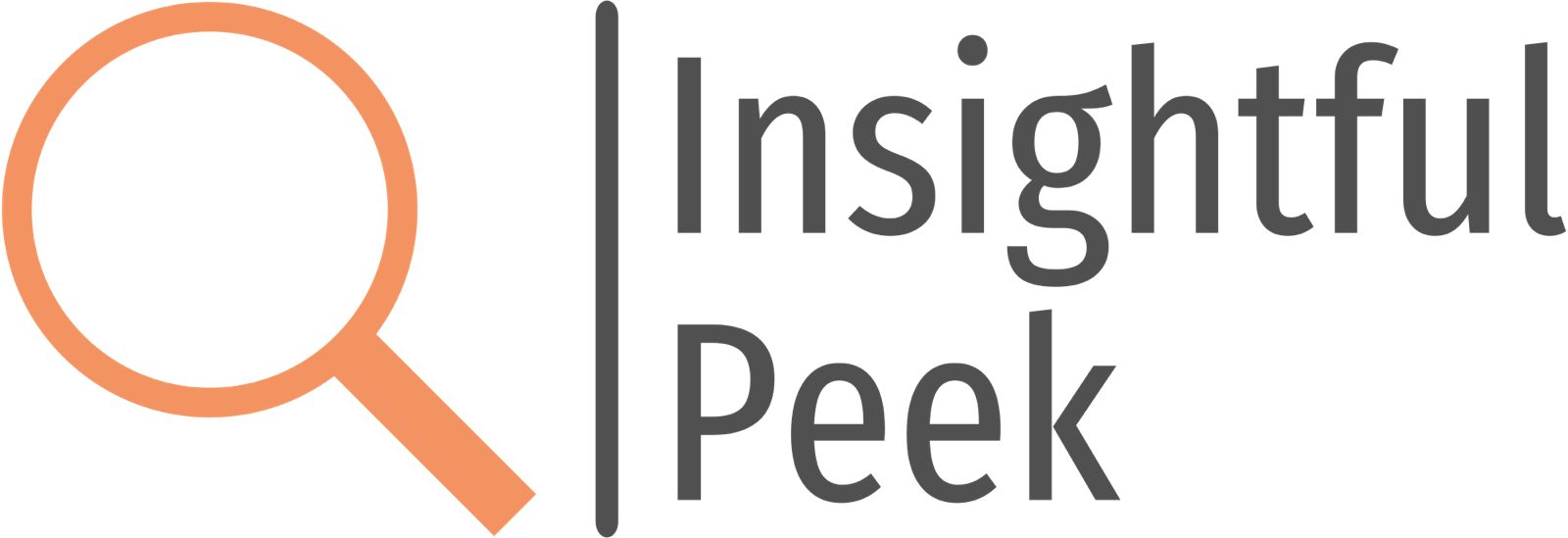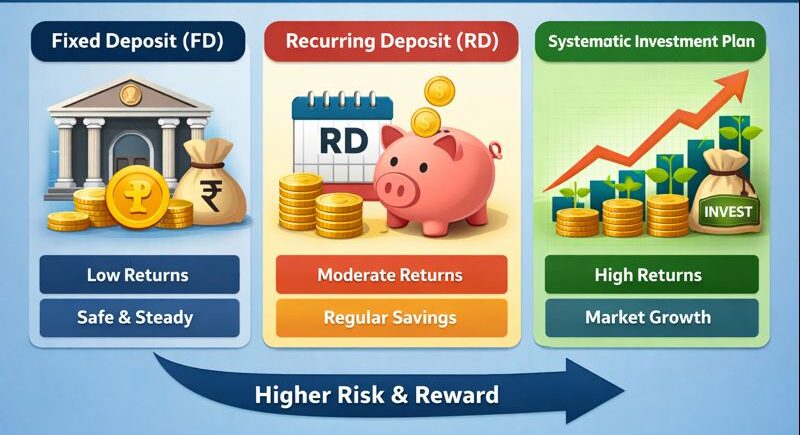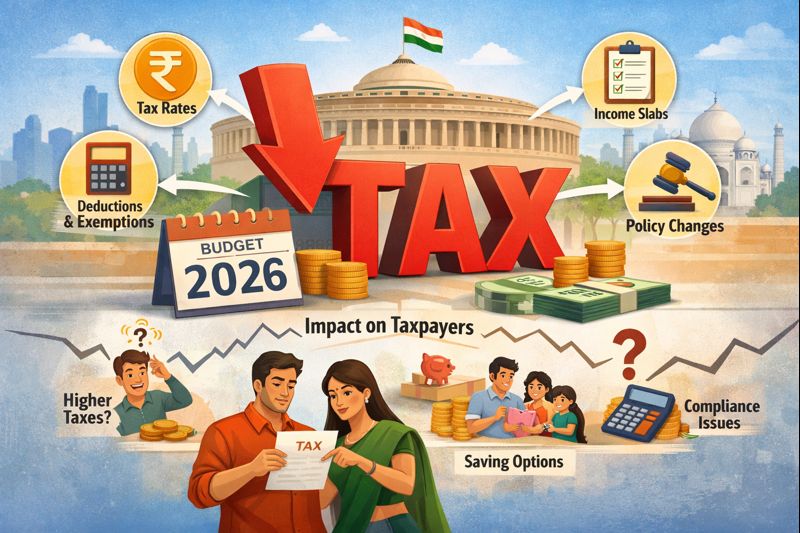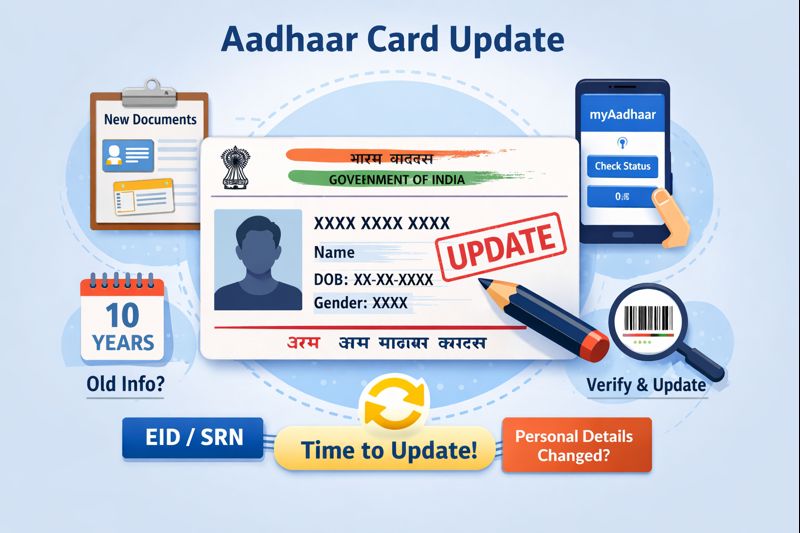Starting April 1, 2025, leading banks like State Bank of India (SBI), Punjab National Bank (PNB), and HDFC Bank will implement revised minimum balance requirements for savings accounts. These updates are designed to promote better account management and align with current economic conditions.
The revised rules will impact customers across urban, semi-urban, and rural regions. If you hold an account with any of these banks, it’s essential to understand the new guidelines to avoid penalties and manage your savings effectively. In this Blog, we will take a closer look at the new updates and how to stay compliant with new rules and regulations.
Role of Banks in India
1. Financial Intermediation
Banks serve as a link between those who save money and those who need funds by accepting deposits and offering loans, thus directing money towards productive sectors.
2. Supporting Economic Development
By providing financial assistance to sectors like industry, farming, infrastructure, and small enterprises, banks significantly contribute to India’s economic progress.
3. Job Creation
Banks not only employ staff directly through their operations but also help generate jobs indirectly by financing businesses and start-ups.
4. Enhancing Financial Access
Initiatives such as Jan Dhan Yojana and rural banking programs enable banks to integrate underbanked communities into the formal financial network.
5. Ensuring Monetary Stability
Banks aid the Reserve Bank of India (RBI) in executing monetary policies by managing the supply of credit, influencing interest rates, and maintaining economic liquidity.
6. Advancing Digital Payments
Through the promotion of digital banking tools like UPI and online services, banks are reducing dependence on cash and encouraging a digital economy.
7. Contributing to Social Welfare
Banks help implement welfare programs, including direct benefit transfers, student loans, and special credit schemes for women’s empowerment.
8. Providing Secure Financial Services
They ensure safe handling of money and offer various services like lockers, remittance, insurance, and mutual funds to meet diverse customer needs.
New Rule of Minimum Balance in State Bank Of India
Since 2020, the State Bank of India (SBI) has removed the minimum balance requirement for its standard savings accounts, offering relief to millions of account holders. Recently, unverified social media posts suggest that SBI might reintroduce a minimum balance of ₹1,000 starting April 2025. Although the bank has not made any official announcement, financial experts advise customers to monitor their account details regularly. For those receiving benefits under government schemes, SBI’s zero-balance accounts remain a suitable choice, particularly helpful for students and individuals with lower incomes.
New Rule of Minimum Balance in HDFC Bank
HDFC Bank currently enforces strict Average Monthly Balance (AMB) requirements—₹10,000 for urban account holders and ₹5,000 for those in semi-urban regions. Unconfirmed reports suggest these limits might be revised upward after April 2025. Failing to maintain the required balance can result in penalties of up to 6%, with a maximum charge of ₹600. For instance, if your balance drops to ₹8,000, you could be fined ₹300. However, financial experts note that maintaining a fixed deposit of ₹1 lakh may exempt you from these minimum balance rules.
New Rule of Minimum Balance of PNB Bank
Punjab National Bank (PNB) currently requires a minimum Quarterly Average Balance (QAB) of ₹3,000 in urban areas, ₹2,000 in semi-urban areas, and ₹1,000 in rural areas. Social media reports suggest this threshold could rise to ₹5,000 starting April 2025. Failing to meet the required balance may result in penalties ranging from ₹400 to ₹600. Over the past five years, PNB has collected ₹1,538 crore in such charges. This highlights the importance for customers to stay alert and maintain the necessary balance.
Tips to Avoid Bank Penalties
- Stay Updated with Official Information
- Regularly visit your bank’s official website or speak with a branch representative to stay informed about the latest minimum balance rules and any upcoming changes.
- Consider Switching to Zero-Balance Accounts
- If maintaining the required minimum balance is challenging, explore options like Basic Savings Bank Deposit Accounts (BSBDAs) or zero-balance accounts, especially if you are eligible under government schemes.
- Automate Your Finances
- Set up automatic fund transfers from other accounts or recurring deposits to ensure your balance doesn’t drop below the minimum required level.
- Link Fixed Deposits to Your Savings Account
- Many banks waive minimum balance requirements if you hold fixed deposits (FDs) above a certain amount, typically ₹1 lakh or more. This can be a good option if you have surplus funds.
- Monitor Account Activity Regularly
- Keep an eye on your account balance through mobile banking apps or SMS alerts to avoid unexpected deductions and maintain the required balance.
- Opt for Low-Maintenance Account Types
- Some banks offer accounts with lower minimum balance requirements based on your location (rural/semi-urban) or usage pattern. Choose one that suits your financial habits.
- Use Digital Banking Tools
- Utilize online tools and alerts that notify you when your balance drops, helping you take timely action to avoid penalties.
Why Investors need to stay Updated?
Over the past five years, banks have collected around ₹8,500 crore in penalties from customers who failed to maintain the required minimum balance, highlighting how critical it is to follow this rule. Although the Reserve Bank of India (RBI) hasn’t released any official statement regarding the recent changes, financial experts emphasize that banks frequently revise their policies. To avoid unexpected charges, it’s essential to keep track of your account status and consult your bank directly for the most accurate information.
Final thoughts
If you hold an account with SBI, PNB, or HDFC, being aware of the updated rules can help you avoid unnecessary fees. Opting for zero-balance accounts or setting up alerts to monitor your balance are easy ways to stay on track. A little vigilance today can lead to significant savings over time.
Sources: msn.com







